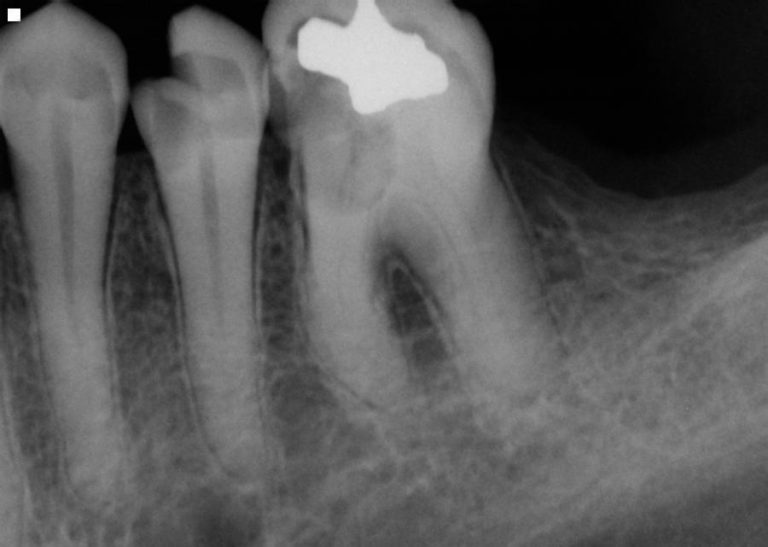Last Updated on 3 weeks by DR. ALBIN SIPES
Yes, filling can prevent the need for a root canal. Filling a tooth helps to restore its function and structure by filling in any cavities or areas of decay.
Addressing these issues early on with a filling can prevent further damage to the tooth and potential infection that may need a root canal procedure. Filling a tooth is a standard and effective treatment that can help maintain oral health and prevent the need for more extensive dental work.
Regular dental check-ups and oral hygiene practices can also aid in preventing the need for a root canal. Taking proactive steps to address dental issues promptly can often prevent the need for more invasive treatments like root canals.
The Impact Of Fillings On Root Canals: An Introduction
Root canals are necessary for treating deep dental infections that affect tooth pulp. Fillings, but provide a solution for cavities caused by tooth decay. While fillers can prevent the need for a root canal, in some cases, they cannot cure an infection that has already reached the pulp.
The primary causes of root canals include severe tooth decay, cracked or broken teeth, and trauma to the tooth. Common symptoms include tooth pain, sensitivity to hot or cold, swelling, and tender gums. Root canal treatments involve removing the infected pulp, cleaning the area, and sealing it with a filling or dental crown.
It’s important to address dental issues promptly to prevent further complications. Regular dental check-ups can help in detecting problems early and potentially avoid the need for a root canal.
Understanding The Purpose Of Root Canals
Root canals play a vital role in preserving tooth health by removing infected pulp. Contrary to common misconceptions, root canal treatments do not prevent fillings. Instead, they address underlying issues and protect the tooth from further damage. While fillings can address minor cavities, root canals are necessary when the infection reaches the pulp.
By removing the infected pulp and filling the space, root canals prevent the need for extraction. It is essential to understand that the purpose of a root canal is not to avoid fillings but rather to save the tooth. These treatments are highly effective at alleviating pain, restoring function, and preserving natural teeth.
So, if you are experiencing severe tooth pain or have been advised to undergo a root canal, do not hesitate to seek treatment from a qualified dental professional.
Can Filling Prevent The Need For Root Canal?
Filling a cavity can prevent the need for a root canal, depending on several factors. Early detection and treatment play a crucial role in this regard. The success rate of fillings as a preventive measure also needs careful examination.
Timely action can prevent further damage to the tooth and potentially avoid the need for more invasive treatment. However, it is essential to consider the size and location of the cavity, as well as the overall oral health of the individual.
Regular dental check-ups and thorough oral hygiene practices can aid in identifying cavities early on and taking appropriate action. Ultimately, proper dental care and preventive measures can significantly reduce the likelihood of requiring a root canal in the future.
Alternatives To Root Canals: Exploring Non-Invasive Treatment Options
Non-invasive treatment options can prevent the need for a root canal. Dental sealants, a preventive approach, are effective in protecting teeth. Maintaining proper oral hygiene is of utmost importance in preventing dental issues. Minimally invasive procedures are available to treat damaged teeth, ensuring minimal discomfort for patients.
These procedures aim to preserve as much of the natural tooth structure as possible. With advancements in dentistry, alternatives to root canals are now being explored, providing patients with more options for treatment. By taking preventive measures and staying on top of oral health, individuals can avoid the need for invasive procedures like root canals.
How Fillings Can Aid In Avoiding Root Canal Treatment
Fillings can play a crucial role in preventing the need for a root canal treatment. Research has shown that fillings effectively treat cavities, preventing further damage to the tooth. By addressing decay early on, fillings can save you from the pain and expense of a root canal.
Understanding the benefits of fillings in cavity treatment is essential. These dental restorations not only restore the form and function of the tooth but also help maintain its natural structure. Moreover, fillings protect the affected tooth from further decay, reducing the risk of infection.
Regular dental check-ups and prompt filling of cavities can save you from the need for a root canal procedure. So, don’t delay. Consult your dentist today to explore your filling options and keep your teeth healthy and cavity-free.
The Role Of Dental Professionals In Preventing Root Canal Treatment
Regular dental check-ups play a crucial role in preventing the need for root canal treatment. Dental professionals assess the severity of cavities to determine whether a filling or root canal is necessary. By collaborating with dentists and endodontists, treatment plans can be customized to meet the patient’s needs.
Maintaining Healthy Teeth And Preventing The Need For Root Canal
Maintaining healthy teeth and preventing the need for a root canal is crucial. Implement effective oral care routines and habits daily. Brush and floss your teeth regularly, and schedule regular dental check-ups. Nutritional factors also play a role in tooth health.
Consume a balanced diet rich in vitamins and minerals. Avoid excessive sugar intake that can lead to tooth decay. Additionally, lifestyle choices impact dental well-being. Avoid smoking and limit alcohol consumption, as these can contribute to oral health issues. Practice stress management techniques, as stress can negatively affect oral health.
By prioritizing oral hygiene and making healthy choices, you can prevent the need for a root canal.
Your Guide To Avoiding Root Canal Treatment
Filling cavities is crucial for preventing the need for a root canal. Consistent dental care and professional guidance are essential. Neglecting oral hygiene can lead to tooth decay and, eventually, root canal treatment. Regular dental check-ups can help identify and treat cavities before they worsen.
Fillings are used to restore the structure and function of affected teeth. They prevent bacteria from further damaging the tooth and reaching the root canal. It’s vital to address cavities promptly to avoid the pain and cost of a root canal procedure.
Remember, prevention is vital when it comes to maintaining good oral health and avoiding complex dental treatments.
Conclusion
Based on the information presented, it is clear that filling plays a crucial role in preventing root canal treatment. The process of filling a cavity helps to restore damaged teeth and prevent further decay. By removing the decayed material and sealing the tooth, fillings create a protective barrier against bacteria and infection.






